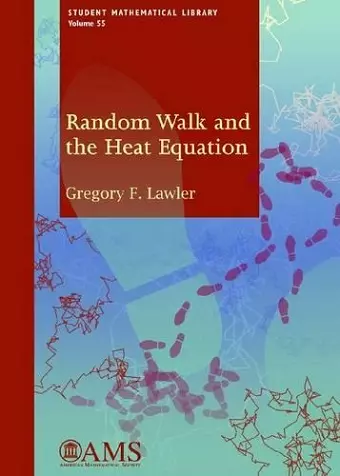Random Walk and the Heat Equation
Format:Paperback
Publisher:American Mathematical Society
Published:30th Dec '10
Should be back in stock very soon

The heat equation can be derived by averaging over a very large number of particles. Traditionally, the resulting PDE is studied as a deterministic equation, an approach that has brought many significant results and a deep understanding of the equation and its solutions. By studying the heat equation by considering the individual random particles, however, one gains further intuition into the problem. While this is now standard for many researchers, this approach is generally not presented at the undergraduate level. In this book, Lawler introduces the heat equation and the closely related notion of harmonic functions from a probabilistic perspective. The theme of the first two chapters of the book is the relationship between random walks and the heat equation. The first chapter discusses the discrete case, random walk and the heat equation on the integer lattice; and the second chapter discusses the continuous case, Brownian motion and the usual heat equation. Relationships are shown between the two. For example, solving the heat equation in the discrete setting becomes a problem of diagonalization of symmetric matrices, which becomes a problem in Fourier series in the continuous case. Random walk and Brownian motion are introduced and developed from first principles. The latter two chapters discuss different topics: martingales and fractal dimension, with the chapters tied together by one example, a random Cantor set. The idea of this book is to merge probabilistic and deterministic approaches to heat flow. It is also intended as a bridge from undergraduate analysis to graduate and research perspectives. The book is suitable for advanced undergraduates, particularly those considering graduate work in mathematics or related areas.
This beautiful little book is an introduction to some of the key ideas of probability written at an advanced undergraduate level. ... This book is very well-written, self-contained up to material from elementary calculus and basic linear algebra, and has plenty of interesting exercises. It is well suited for an advanced undergraduate course, a student seminar or as material for an undergraduate project." - Mathematical Reviews
"This is a very readable introductory course resource on topics...that have more than their fair share of unreadable textbooks...Its reader-friendly style makes it an ideal choice for a reading course or self-study. ...Given the paucity of quality books in this area, the work will be a critical resource for mathematics collections... Essential." - M. Bona, Choice
ISBN: 9780821848296
Dimensions: unknown
Weight: 214g
156 pages